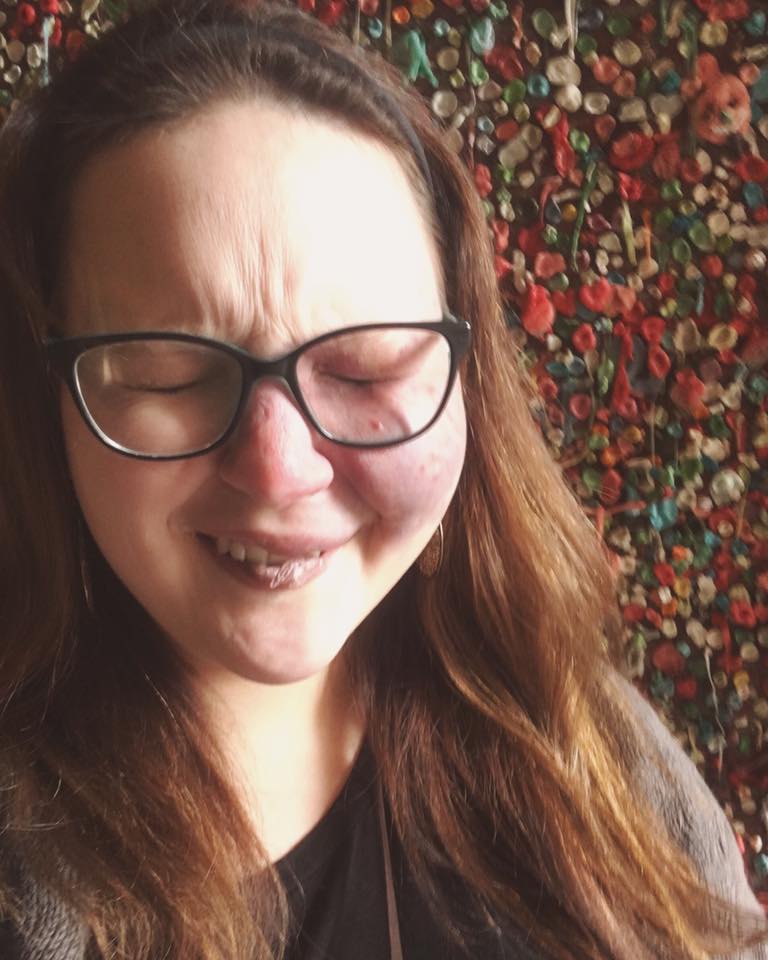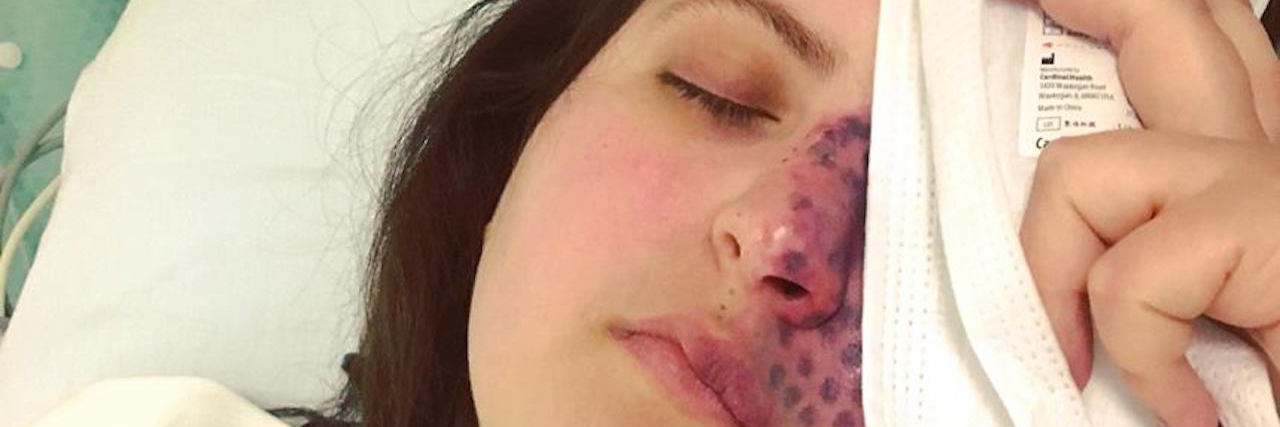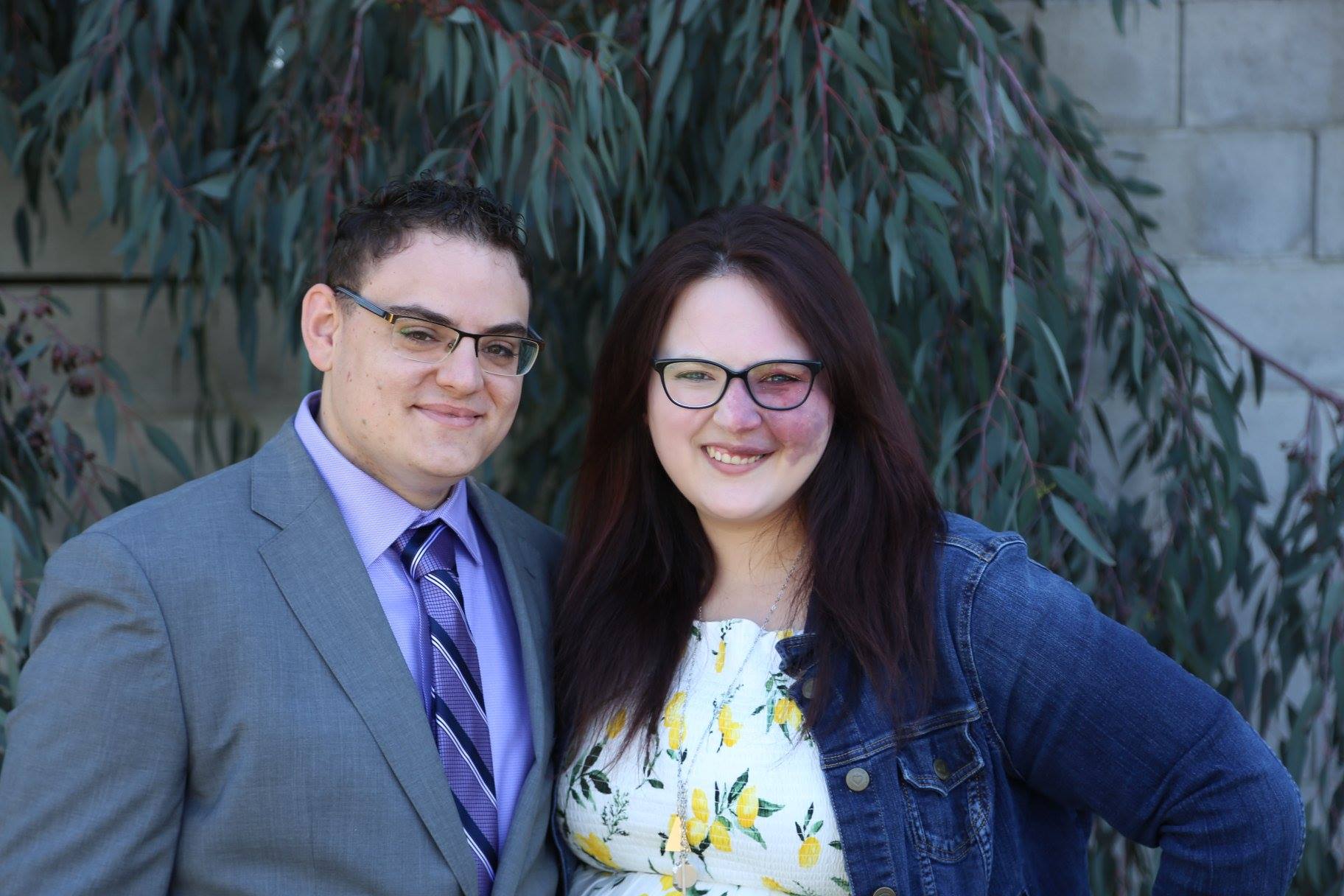This year has been a really hard advocacy year.
Actually, it probably has been the hardest one yet.
Because there’s so much positive to share in my journey (speaking opportunities, articles, media interviews, etc.) I think that it’s equally as important to be open about the hard, vulnerable, and raw stuff too.
This year I’ve had people tell me I was in the wrong for standing up for myself in a way I felt was necessary – even though they weren’t in my shoes, or experiencing the situation personally. They weren’t even in the room.
Last month I had a video a company made about my story. While they did a great job with the video and I was proud of the outcome, it still resulted in some cruel comments… many of which resulting in my hitting the “report” button.
Strangers telling me to “F-off” and that my medical condition isn’t valid and is “insignificant” because they were going off what they can see – not realizing there may be more to my condition than what meets the eye.
A parent of a kid with similar condition accusing me of having a “false” and “hypocritical” public image – all because I didn’t respond to their email fast enough. (While also guilting me to be friends with her daughter.)
…and that’s only four issues I’ve run into in the last three months alone.
In all my years of an advocate, I’ve never felt so drained. Never felt so tempted to quit. Just the other day, due to another hard situation not mentioned, I even found myself saying words I never thought I’d say to my fiancé, “One day I may just stop.”
And the thing is, I can quit anytime I want. I can delete my blog, I can speak and write about other topics I’m passionate about — human trafficking, travel, or even photography. I can be known as someone other than “the girl who blogs about life with a birthmark.”
But then I remember why I do what I do.
I’m an advocate for myself, because I believe we should all advocate for ourselves to the best of our abilities. No one knows our bodies like we do, and no one can get the care for their own body’s need like we can.
I’m a storyteller so others can realize they’re not alone in their journey. Maybe our stories are different, but there is someone who can relate – and who looks like them.
I’m an educator so when someone is unkind to me because of my facial difference, maybe they’ll be kinder to the next person they meet in similar shoes. Maybe the next generation of people with facial differences will be seen as people with a name and story, instead of made to stand out through harsh comments and uncomfortable stares.
I’ve thought about quitting more times this year than I care to admit. But I do this because it’s what I feel called to do – even on the hard days. God’s not done with my story yet, and He’s not done with my storytelling.
Sometimes I wonder why my skin isn’t “thicker by now.” But then I’m thankful that it’s not, because I’m afraid “thick skin” for me would equate to a “hard heart” — and I so desperately want to keep that tender. I also remind myself that my feelings are real, and they’re valid. It’s OK to feel them, process them, and honor them.
Maybe one day I will “quit,” and hopefully someone else will be ready to carry the advocacy baton when and if that time comes. But until then, I remember the beautiful moments — like surprising a sweet kiddo with the same facial birthmark in the hallways of her school. I remember the emails of people who write me and say, “I thought I was the only one — but then I stumbled on your blog!” I remember the good moment that have passed and that have yet to come. I remember self-care, that it’s OK to take breaks and/or sabbaticals, and I’ll remember why I do what I do.
I remember that advocacy work isn’t always easy, but it’s not always this hard either.
All that being said, as you follow and connect with health advocates online, here are a few things that I think are important to remember as you follow and connect with me, and other health advocates and role models:
1. We are so thankful you’re willing to be a part of our journey with us on our blogs and social media.
Oh boy, are we thankful for you! Whether you found us through media interviews and have no direct experience with our condition, a parent of a child with the condition, or you live with it firsthand – thank you for sharing our blog entries, social media posts, and for being a friend on the journey.
2. We’re likely not doctors.
I constantly get emails asking for medical advice, including what treatments I think people should do and asking what their medical options are. Some people have even asked me to diagnose them. While I have a lot of medical knowledge, if we have the same conditions, our conditions may affect us differently. I don’t have a medical degree, and I can’t give you a medical opinion. All I can do is share my patient experience – what treatments work for my specific case, how the treatments affect my body and my mental health. If you ask me for medical advice for port wine stain birthmarks or Sturge-Weber syndrome, I’ll probably just send you to The Vascular Birthmarks Foundation where they can then connect you with doctors where you can find the advice you’re looking for. I’d love to hear your story, share more details about mine, and encourage you, but please don’t ask me for medical advice.
3. Most of us wish we had time to reply to every email, social media comment, message on Facebook, message on Instagram, and every Snap sent to us on Snapchat.
But often we don’t. Or, at least not within an immediate timeframe. Hearing from you is one of my favorite things about my job! But, unless we have a note pinned to the top of our page, “I promise to respond to every message within 24 hours,” please don’t expect us to write back within a day, or even a week. We’re not on-call, nor are we a like a “one hour film development” center.
While we’re seen posting a lot online, we also live a life away from the computer – much of which isn’t published online for the world to see. Personally, I have a job, a fiancé I’m planning a wedding with and building a future with, family obligations, and friendships that I need to tend to face-to-face and way from the screen.
Also, it’s important to remember that not only do I write about my conditions, but I live with them as well. Sometimes I have to take care of myself before I can help take care of others. I have doctor’s appointments, laser surgeries, speaking engagements, and sometimes I travel. I also usually have a thousand ideas in my head at any given time, and I’m trying to manage them so I can best serve the health community I’m in.
To navigate my advocacy work and every day life, I do my best to reply to messages when I can. But I also have a habit of going through all my inboxes at least once month in effort to reply to people – but even then, sometimes I accidentally miss a few people.
Sorry about that.
4. It’s OK to message us again if we don’t reply to your first email.
But please be kind. It’s possible we didn’t see your message, even if Facebook said we did. It’s possible that your email never reached our Yahoo or Google accounts. Please don’t assume we don’t want to talk to you, or that we have set up a “contradictory image” in the public eye. We’re doing our best, really, we are.
5. Even if we don’t reply, we soak in your encouragement.
Encouragement from others is so vital to what we do. Sometimes I even print people’s emails or messages to help me on the days that are hard health days, or even hard advocacy days. Your encouragement serves as a reminder that we are impacting the world for the better, that we are making a difference – even if it feels like we’re not.
6. When we tell about an experience we’ve had, remember you weren’t there – which means you don’t get to see the full picture, regardless of how well we’ve written the story.
Sometimes the hardest part about sharing stories online is that, often, I was the only one there. I write stories sharing about times when people stare at me, or make a comment about my facial difference, and I share them to the best of my ability with full honesty. Yet, sometimes that’s not enough. An experience has many elements, including things such as emotions, smells, tastes, body language, and tone – and they’re 3D, layered with details. They’re constricted between black and white letters on your screens, or the within the pixels of videos we may share. But because I was the only one there, there are several elements that readers will miss – so therefore wrong assumptions are made, and fair questions aren’t asked.
In the past, people have responded in anger and judgement, telling me I was in the wrong by choosing how I responded to someone saying something unkind about my facial difference, or how I responded to someone who spent several seconds – if not minutes – staring at me. Instead of hoping for the best and assuming I have a level head on my shoulders, I get criticized for standing up for myself in a hard moment… and in a way I deem necessary.
7. You may not agree with how we choose to advocate for ourselves, but it may be just right for us in that particular moment.
Like I mentioned above, I’ve had people tell me I was in the wrong for advocating for myself in certain situations. For example, during my online dating experiment one man wrote to me and said, “Oh, what happened to that beautiful face?” I replied with wit and humor, “Oh my gosh…What do you mean? Is something wrong with my face?”
People instantly started writing comments on my Facebook post about the experience. Most were supportive and understood my humor, especially when people who were following the online dating fiasco knew I was open and blunt about my birthmark in my pictures and my profile. But one woman told me I went about my response in the wrong way.
Once again, while most people were supportive, there were a few people who weren’t – and who let it be known. In the end, I can only make the best decisions I can with the knowledge I have in the moment. And that’s just what I’m doing.
7. I believe in the form of accountability, but there’s a time and place.
I’m only human.I won’t always get it right when I advocate publicly and privately. But while I share stories online, if you have feedback – stop and think before you hit the “post” button. Is your comment better shared publicly, or would it be kinder to show a little grace and message me privately so we can have a constructive conversation? Are you leaving the comment to be “right,” or because you genuinely want to give feedback to help me grow and learn as an advocate? Before you message me, it may be a good idea to write your email, sit on it, reread it the next day, and then send it. But also, remember I do have people in my life holding me accountable. I rely on my mentors, my parents, my best friend, and fiancé for guidance. They’re honest and blunt opinions are the ones I trust the most, and the ones I constantly seek in hard situations.
8. We don’t always have to be nice when we advocate for ourselves.
While I try to stay kind in my responses to people’s comments and stares, there’s nothing that says I have to respond in a kind way. Some situations do call for a little bit of sarcasm and sass, and while I rarely ever tap into them and can only count on one hand the amount of times I’ve used this method, I have the right to implement those tactics when I deem necessary. My heart and feelings come first, and sometimes responding to unkindness with a sarcastic joke is more necessary than a smile.
9. Please don’t guilt us into being friends with your children.
Are you trying to find a mentor and friend for your kiddo with a medical condition? Someone who’s been through the hardships first hand? That’s amazing! I wish I had that as a child and teenager and I totally see the value and beauty in that. While I love befriending others with the same conditions, and helping kids on their journey, I can’t always be everyone’s “go-to.” If I end up being great friends with your child one day, yay! I’m so glad. But please don’t force it, try to guilt me into it, or get angry if my life doesn’t allow it at that time.
10. Sometimes we have to put up boundaries.
Did you know that Facebook only allows people to have 5,000 friends? Because of this reason alone, sometimes we won’t add people with the same condition as friends. Many of us also have public pages people can “like,” and you can see the same content you’re looking for on that corner on the web. (You can find my Facebook page here.) We also want to have a safe space online, where we can talk about random life events we may not want the public to see or know about. We may want to post pictures of children in our lives, while wanting to remain confident that we haven’t added any unsafe strangers to our friend list. In many of my talks, I discuss internet safety after having my image stolen – and I believe in practicing what I preach.
11. We’re not your only option.
Did you know that there are likely Facebook support groups for your condition that you can join? Depending on your condition, there may even be support groups in your hometown. Sometimes nonprofits even host events once or twice a year in different cities so you can connect with people in similar health conditions, and to learn about your conditions. I know the Vascular Birthmarks Foundation alternates between the general LA area and New York area every year, and they even have top specialists in the field for port wine stain birthmarks, hemangioma, and Sturge-Weber syndrome, surgeons, and dentists that you can make free appointments with during the events. Usually this event takes place every October.
12. We’re only human.
If you think about it, this generation of social media has redefined what it means to be a health advocate. Not only are we advocating in doctor’s offices or giving speeches, but we’re advocating online and in a digital permanent marker. In a way, we’re the first of our kind as we manage our own health, situations that may arise in the doctor’s office or when we go out in public, and also online. Many of us are learning as we go, and we’re doing our best.

13. It’s OK if we decide to “quit,” and even we I don’t, you’re welcome to join us in the advocacy world!
If you want to share your story and join me, your perspective and story is welcome! There’s always room at the table for you. Your story is yours, and you can share it or keep it private. That decision is all yours, and both choices are perfectly OK! The same goes for me. Occasionally, I may be on the quiet side and take a sabbatical. One day I may even decide to switch gears and talk about other important life topics. I’m a woman of many talents and interests. From baking to human trafficking, from photography to travel, who knows if one day I may choose a different focus.
For now, though, I’m continuing the journey as a health advocate. I love what I do and I’ve enjoyed the journey as an advocate for people with port wine stain birthmarks, Sturge-Weber syndrome, and facial differences. I’m not perfect at my job or in my work, but I promise you that I’m doing my best as I spread awareness about these conditions, and as I teach about kindness.
Thank you for being a part of my journey, and thank you for showing me kindness I spread awareness and advocates – both when I get it right, and even when I get it wrong.


